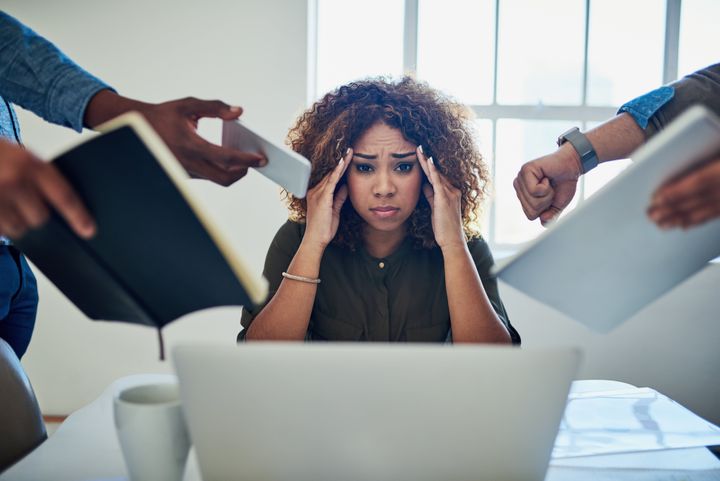The stress of everyday life and how to deal with it
Learn how to deal with stress!
Annoyed by work, interpersonal problems or the fear of an exam; stress is a frequent issue in everyone’s lives these days and affects us in many different ways. So how can we deal with stress? And what can we do, for example, in a relationship to help and support each other to cope with everyday stress?

The Eustress vs. the Distress
First of all, it is important to distinguish between the different forms of stress. So science differentiates between positive stress, the so-called “Eustress”, and negative stress, or “Distress”. The first one serves as a kind of challenge and motivation for positive performance, thus leads to a higher productiveness. However, if the stress load increases too much, it leaves the constructive framework and no longer serves productivity. The distress can be a trigger for negative life events. Also, it can lead us to a state where we don’t see a solution to our problems anymore. Signs of this kind of stress can be high blood pressure, digestive problems or irregular breathing.
Dealing with stress
But what can we do to deal with this stress? First, it is important to identify the causes of those situations in which we feel increasingly stressed or overwhelmed. These stimuli from the environment, so-called stressors, can cause the corresponding stress. The interpretation of the respective stimulus by the affected person is also a variable influencing stress. Consequently, for the future, one can take certain preventive measures that work in advance and thus avoid the stress that would otherwise potentially occur. As a rule, taking regular breaks from those stress-leading situations is essential. Taking a break simply for the sake of the rest, or to clear your head is a good first approach to avoid excessive stress.
If a state of stress can no longer be prevented, it is time to cope with it as effectively as possible. The psychologist Richard Lazaros primarily distinguishes between three different types of coping, i.e. ways of dealing with the existing stress.
Problem-oriented coping
The first type is the ‘problem-oriented coping’. It follows the approach of directly mastering the responsible stimulus. The individual manages to overcome the problem situation through the search for information and concrete actions, or the omission of these, respectively.
Emotion-oriented coping
Another strategy is ’emotion-oriented coping’, which aims at reducing stress through emotional excitement. The efforts are thus used to improve an emotional state by keeping negative emotions in check. Here the own behavior is changed and not the stressor.
Evaluation-oriented coping
The third possibility describes ‘evaluation-oriented coping’. Through this strategy, the stressed person tries to cognitively re-evaluate the stimuli from the environment in order to see problems and burdens more as challenges. As a result, resources can be used to respond to these challenges and to remedy the original state of stress.
Avoiding stress

Generally speaking, all these strategies help us to escape and overcome stress. But to avoid stress in the first place, in addition to the preventive measures described above, we should increase our own stress tolerance. The most common recommendation for this is to do regular exercise or, for example, meditation. Additionally, to dedicate time for hobbies is also a suitable solution.
Hobbies are a good way for partners to avoid stress together. Common activities are not only pleasant, but one can also motivate each other. This strategy is also suitable for a relationship between a Sugardaddy and a Sugarbaby. Partnerships of this kind, like any other romance, can involve tensions, quarrels, and other stressful situations. A walk together or mutual emotional excitement, for example, can remedy the problem. Also important is to do such activities with regularity. The reason is that stress usually does not simply disappear, but rather has to be reduced over a longer period of time.
In conclusion
The strategies and options that can counteract stress and related situations are as complex and versatile as the stress itself. Stress is more or less unavoidable because problems and excessive demands are everywhere and at any time. To a certain extent, stress is even healthy, so it motivates us and constantly drives us forward. If, however, the limit of the useful stress is exceeded, it is important to know how one can help oneself or also the people in one’s direct environment, in order to deal with stress and its challenges and to even avoid it in the future
Two are better than one to deal with stress. Find a partner here!

